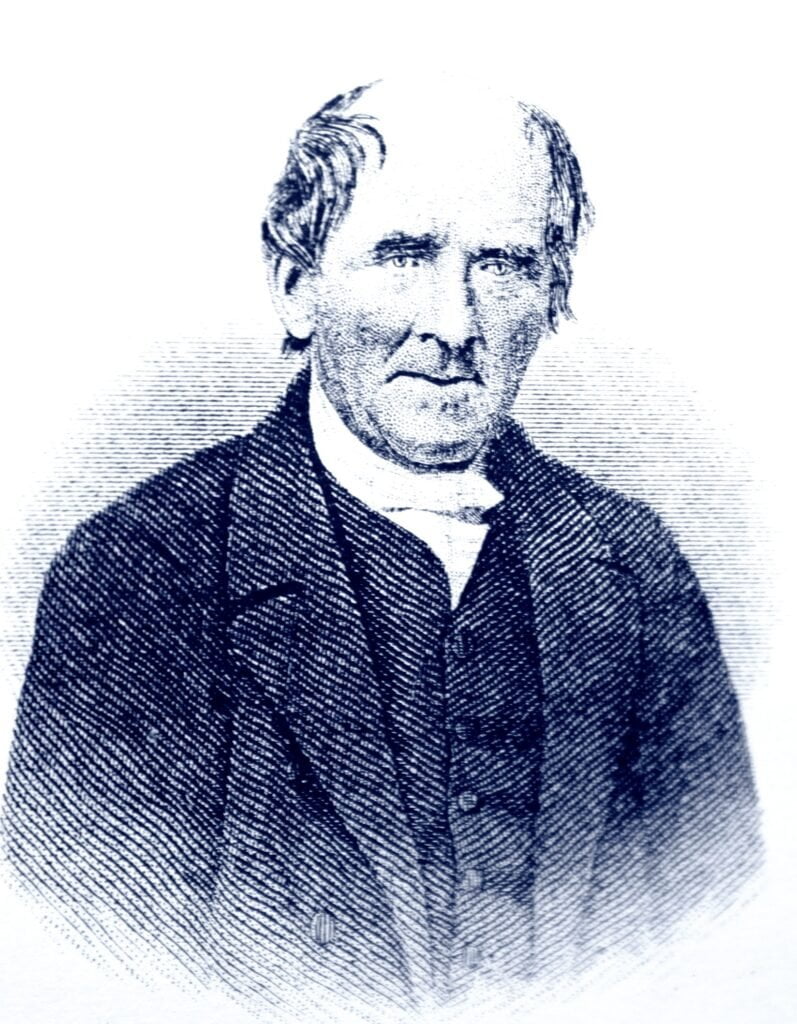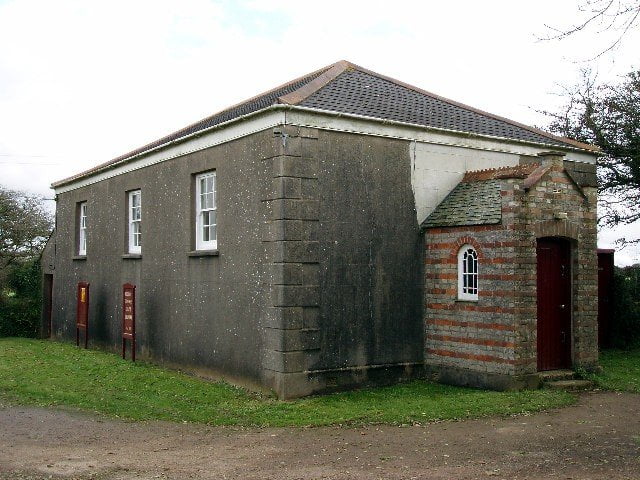Thomas Shaw, was a Methodist Minister, and a Bard of the Cornish Gorsedd (ystoiyer Methodysyeth). Tthe former general secretary of the Wesley Historical- Society, editor of the Cornish Methodist Historical Association Journal’, author of The History of Cornish Methodism, the Bible Christians, and many other local Methodist Church histories.

During the celebration of the 250th anniversary of Cornish Methodism last summer, a flower festival was held at Boscastle. The different stands of Methodism were each represented by an emblem surrounded by a floral arrangement. The central feature on one window sill was a pair of old boots. They were not the riding boots of John Wesley, the horseman who first brought Methodism to Cornwall in 1743, nor the sea boots of Robert Stephen Hawker the eccentric vicar of Morwentow up the coast, but the well-worn boots of a Cornish miner from Baldhu, which were to shout: “Glory, Hallelujah” as he danced along the lanes. The dancing miner was born at Twelveheads on 1st June, 1794, and shortly afterwards baptised William Trewartha Bray at Gwennap church. In the course of time the infant Christian, William Trewartha Bray, became William Bray, Mr. William Bray, Brother William Bray – and then, to thousands of people in Cornwall, up-country and overseas – Billy Bray. He was known as the converted Cornish miner, once a merry drunkard with a ready jest on his lips, who had become a merry exuberant Christian, abounding with quips and sallies to popularise the Methodist way of life. When he heard that some people were calling him a mad man he replied that they meant he was a glad man whose joy could not be contained. When he walked along the lanes and the underground passageways of the mines he hastened his step and hopped and jumped and sang Wesley’s hymns with the verve with which he had previously sung bawdy songs. Billy’s conversion, in 1823, followed the Methodist pattern of the time but it had some variants. His father was a miner and in addition had a parcel of land between Twelveheads and Cross Lanes. When he was still quite young, Billy followed his father daily into the underground world of the mines. Soon afterwards his father died and Billy was brought up by his grandfather, old William Bray, who lived at Twelveheads and met with the Methodist Society there. The Methodist teaching and example of both his Wesleyan grandfathers probably influenced Billy unconsciously for a number of years, eight of them in Devon, during which he gradually chose his own different path. By the time he returned to Cornwall in 1818 he had become a hard swearing and drinking man. Life in the Cornish mines was in itself both heaven and hell. The miners were a close-knit and often inter-related community and shared much in common. Danger and death were at hand every day. It was true that the hymns of Charles Wesley were sung by the miners as they climbed up and down the ladders, crawled along the adits and filled the trucks daily. It was also true that the very different songs of dissolute companies of men were commonly heard and it was in one of these groups that the twenty-four-year-old Billy Bray became a leader. Naturally “the life of the party”, he drifted into the “extremism of the devil’s company” and even among these companions it was said his oaths could only have come from hell. One day, somebody gave him a copy of John Bunyan’s “Visions of Heaven and Hell” to read and he was deeply impressed by it. He read the book, concentrating first on heaven and its joys and then, with increasing horror, on its account of hell. He decided that heaven was his home – did the memory of his grandfathers help him at this point? At that moment he felt far from home. In the book he read about two Dantesque inhabitants of hell who spent their time cursing each other for having brought him there, and he began to wonder whether he and his friend, S. Coad, would, if they didn’t change their ways, end up tormenting one another in hell. He decided that God was his Father and heaven was his home and like the Prodigal Son in the Gospels he resolved to arise and go to his Father’s home, confessing his sins and being assured of the Father’s love and forgiveness. By this time he had married “Joey” Bray (if a relative, a distant one). They were married in Kea church in 1821, by Richard Polwhele the eminent writer, historian and critic of Methodism. What a pity that among his pen portraits of his friends and foes, Polwhele didn’t leave a description of the bridegroom that day; not long afterwards Billy would have insisted on dancing down the aisle, carrying his bride with him. The bride “Joey” was a lapsed Methodist at that time – a “backslider” – but soon she, like her husband, returned to the fold. They were then of one affection and one mind. She must have found his sudden sobriety a great relief, but his eccentricities must have been no small burden. One day when he was going to Truro market she asked him to buy a frock for one of their children. He returned with an empty basket swinging on his arm and explained – or rather stated joyfully – “Glory to God, I must have danced it out of the basket.” Living on a miner’s income was far from easy and it did not improve when Billy brought home two small orphans for them to add to the family. Two strange events happened at this time; William Haslam, the perpetual curate of Baldhu was an accomplished architect; his work can be seen at his now derelict church at Baldhu and at St. George’s, Truro. wI1iich he also designed One S’uncthy, news spread round the district that at church that morning. while Haslam was preaching, a Methodist local preacher in the congregation suddenly stood up and shouted: “Praise the Lord, the parson is converted.” It was as though a conservative prime minister had suddenly begun to recommend socialism in his speech at the party conference! What had happened was that Haslam, who had been Anglo-Catholic in his belief and practises, had suddenly been converted to evangelicalism. Billy was excited when he heard the news and went straight to the vicarage at breakfast time and rang the bell. Haslam opened the door and was greeted by Billy who, on checking that they had all converted, swept into the kitchen and was soon dancing and singing with the three maids around the table. He then returned to the dining room with the dazed Haslam in his arms and ended up by rolling on the ground for joy for, as he said, he “was as happy as he could live”. Today the church is in a sad state but it is often visited by pilgrims who wish to see Billy’s granite obelisk, in the churchyard, which bears the inscription: “In memory of William, better known as ‘Billy’ Bray or ‘The King’s Son’, who died at Twelveheads, May 25th 1868, aged seventy-three years. He was a local preacher with the Bible Christians nearly forty-four years. By his sanctified wit, Christian simplicity, fervid faith, and many self-denying labours, he commended himself to a wide circle of friends, while living, and the published record since his death of his memorable sayings and doings has made his name familiar as a household word in our own and other lands.”

To be continued